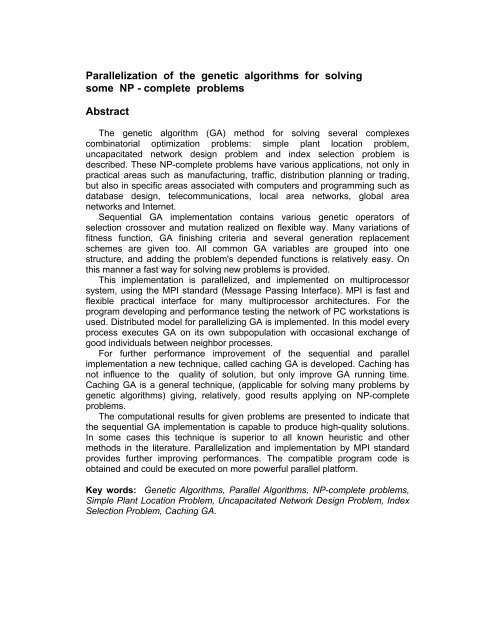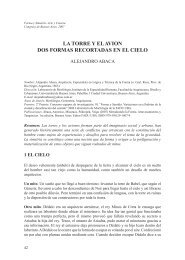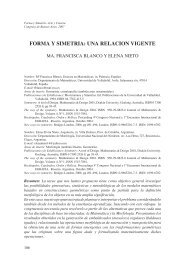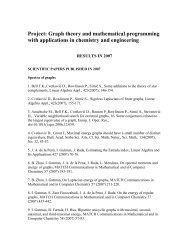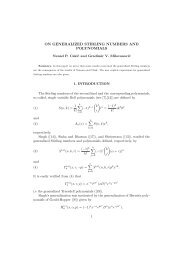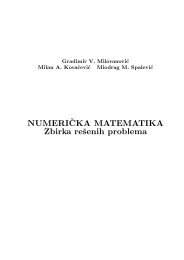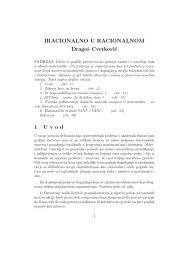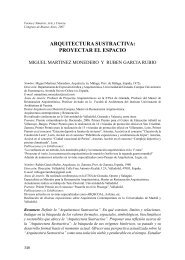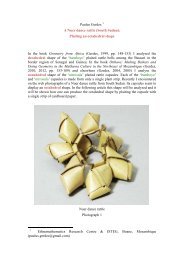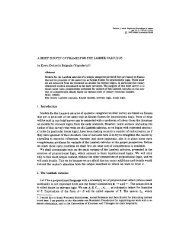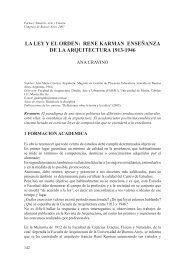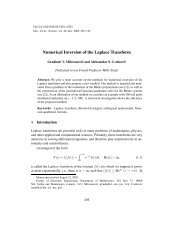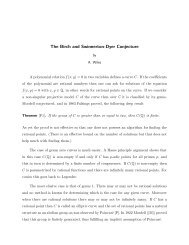You also want an ePaper? Increase the reach of your titles
YUMPU automatically turns print PDFs into web optimized ePapers that Google loves.
Parallelization of the genetic algorithms for solving<br />
some NP - complete problems<br />
Abstract<br />
The genetic algorithm (GA) method for solving several complexes<br />
combinatorial optimization problems: simple plant location problem,<br />
uncapacitated network design problem and index selection problem is<br />
described. These NP-complete problems have various applications, not only in<br />
practical areas such as manufacturing, traffic, distribution planning or t<strong>rad</strong>ing,<br />
but also in specific areas associated with computers and programming such as<br />
database design, telecommunications, local area networks, global area<br />
networks and Internet.<br />
Sequential GA implementation contains various genetic operators of<br />
selection crossover and mutation realized on flexible way. Many variations of<br />
fitness function, GA finishing criteria and several generation replacement<br />
schemes are given too. All common GA variables are grouped into one<br />
structure, and adding the problem's depended functions is relatively easy. On<br />
this manner a fast way for solving new problems is provided.<br />
This implementation is parallelized, and implemented on multiprocessor<br />
system, using the MPI standard (Message Passing Interface). MPI is fast and<br />
flexible practical interface for many multiprocessor architectures. For the<br />
program developing and performance testing the network of PC workstations is<br />
used. Distributed model for parallelizing GA is implemented. In this model every<br />
process executes GA on its own subpopulation with occasional exchange of<br />
good individuals between neighbor processes.<br />
For further performance improvement of the sequential and parallel<br />
implementation a new technique, called caching GA is developed. Caching has<br />
not influence to the quality of solution, but only improve GA running time.<br />
Caching GA is a general technique, (applicable for solving many problems by<br />
genetic algorithms) giving, relatively, good results applying on NP-complete<br />
problems.<br />
The computational results for given problems are presented to indicate that<br />
the sequential GA implementation is capable to produce high-quality solutions.<br />
In some cases this technique is superior to all known heuristic and other<br />
methods in the literature. Parallelization and implementation by MPI standard<br />
provides further improving performances. The compatible program code is<br />
obtained and could be executed on more powerful parallel platform.<br />
Key words: Genetic Algorithms, Parallel Algorithms, NP-complete problems,<br />
Simple Plant Location Problem, Uncapacitated Network Design Problem, Index<br />
Selection Problem, Caching GA.


